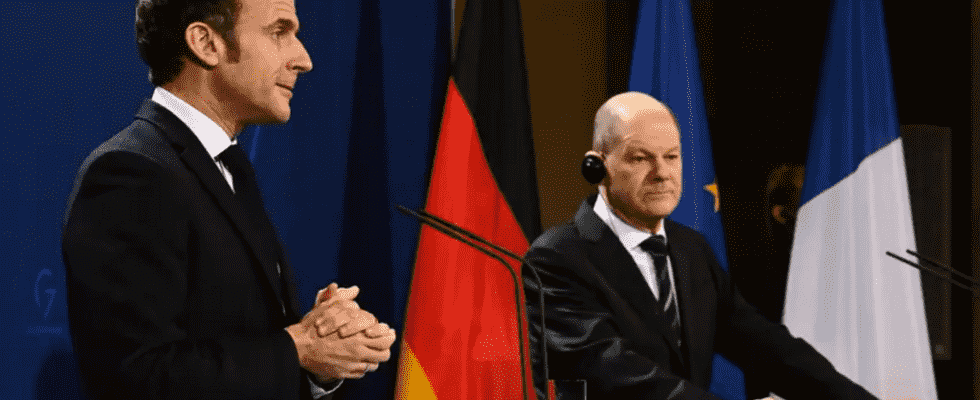The German Chancellor will be in Paris this Wednesday, October 26 for a working lunch with the French President. This visit comes as a Franco-German Council of Ministers scheduled for today in Fontainebleau was canceled a week ago.
” Communal meals at the highest level have always relaxed the difficult relations between France and Germany », observes the daily Suddeutsche Zeitung, recalling at the same time that relations between the two countries have always been marked by tensions. The postponement to January of a Franco-German Council has shown the extent of the disagreements. A report which has also made fewer waves in Berlin than in Paris, reports our correspondent, Pascal Thibault.
On the energy issues, the two different models of the two countries do not facilitate agreements. Berlin opposes a cap on the price of gas in Europe as advocated by Paris. Germany, more dependent on this source of energy, fears that suppliers will turn to other customers. Berlin’s €200 billion energy shield has drawn criticism in Paris and elsewhere. Paris was not informed of this. Olaf Scholz, who praised the measures here, then sought to minimize them with his European neighbors.
Defense industrial cooperation almost at a standstill
In addition to energy policy, Olaf Scholz and Emmanuel Macron should talk about armaments. With its mega budget of 100 billion euros, Berlin no longer hides its ambition to go it alone in defense matters. Thus, concerning the anti-missile shield, the German chancellor hinted this summer that he would see himself taking control of this European-oriented project. This future sky shield has since attracted fourteen NATO countries, and will be made up of German, American and possibly Israeli equipment, while anti-missile capabilities already exist in Europe, in particular with the “Mamba”, produced in France.
Another stumbling block: the combat aircraft of the future. For more than a year, this strategic program has been on hold. After months of tough discussions, no agreement has been found between the French Dassault and Airbus, which represents German interests. The tricolor group, initially designated prime contractor for the project for its undeniable skills in combat aircraft, refuses Airbus’ demands, namely the sharing of patents on flight controls, the most critical part of a hunter.
As for the tanks of the future and guns of the future, they are also at an impasse and it is therefore almost all Franco-German defense industrial cooperation which is now at a standstill.
► To listen also: Tensions between Paris and Berlin: mishap or deep crisis?
